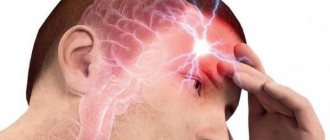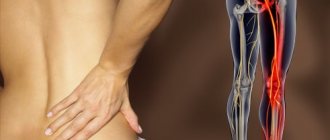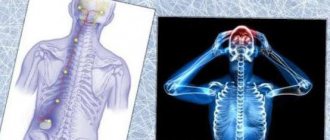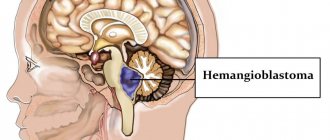Throat neurosis (pharyngoneurosis) is a rare disorder. It is characterized by anesthesia of local tissues or severe discomfort in the throat in the form of constant tickling, burning, and pain. Negative physiological symptoms aggravate the patient’s neurotic characteristics and make him very irritable.
In Moscow, treatment of pharyngeal neurosis is carried out by doctors from the Leto mental health center. If you are faced with this unpleasant disease or suspect that you have it, call 8(969)060-93-93 . We will help you deal with this problem.
Violation information
Laryngeal neurosis is a sensitivity disorder of the mucous membranes associated with an unsatisfactory mental state of a person. It was talked about more than a century ago. Then scientists wrote about a “coma in the throat” in patients with hysteria.
Today the pathology has been studied in detail. It has been established that it manifests itself more often in people prone to solitude, introverts. Usually these are people over the age of twenty.
To understand the causes of pharyngoneurosis, you need to consult with a psychiatrist, neurologist, or otolaryngologist. The approach to treatment must be comprehensive. Then it will be possible to get positive dynamics in a short time.
Reasons for the development of spasm
The nature of the development of a spastic state can be:
- psychoneurological;
- somatic.
Psychoneurological etiology plays a major role in spasm both in healthy people and in mental disorders (schizophrenia, manic states, depression). The so-called hysterical coma is observed in people with a labile, unstable nervous system. Spasms of varying intensity occur due to nervous conditions, mainly in women. In the weaker sex, psychosomatics determines the same phenomenon during the menopausal period, when hormonal changes occur, during pregnancy or before critical days (premenstrual syndrome).
The somatic sphere includes:
- infectious diseases;
- hormonal;
- diseases of the musculoskeletal system;
- disorders of the cardiovascular system;
- the appearance of tumors in the throat.
Laryngospasm and a lump in the throat accompany frequent diseases of the nasopharynx. Chronic inflammation of the mucous membranes leads to the fact that the mucus necessary to moisturize the respiratory tract is produced in insufficient quantities. Persistent streptococcal infection can cause pharyngoneurosis and laryngoneurosis.
Important! Laryngeal spasm is not an independent disease, but it can be an alarming signal, a symptom of a serious illness.
Thyrotoxicosis, caused by hyperfunction of the thyroid gland, also leads to a lump in the throat. Problems with swallowing increase as the body of the gland enlarges and puts pressure on surrounding tissues and organs.
- What is a “lump in the throat” and how to get rid of it
Other factors that can cause impaired swallowing function and a spastic state are osteochondrosis, tumor diseases, vegetative-vascular dystonia (VSD), hyperacid gastritis. Spasm sometimes appears after irrigating the pharynx with certain medications - for example, during the fibrogastroduodenoscopy procedure, an optical probe is inserted into the esophagus to examine the stomach and duodenum. To stop the gag reflex, the palate is irrigated with a solution of novocaine. After the procedure, the patient will feel a lump in the throat for some time.
Why does it occur
Unpleasant symptoms of throat neurosis are associated with changes in the sensitivity of the pharyngeal funnel. This may happen due to:
- Mental disorder. Being in a state of prolonged stress, hysteria, psychosis, depression - all these are provocateurs of overexcitation of pharyngeal receptors. Against the background of their increased stimulation, unpleasant sensations appear in the throat. They intensify if a person is nervous.
- Disruptions in innervation processes. This term refers to the connection of pharyngeal receptors with the central nervous system. Conduction failures are recorded in malignant neoplasms in the brain, neurosyphilis, multiple sclerosis, and also during the recovery period after a stroke. But most often, a violation of peripheral innervation is the result of osteochondrosis of the cervical spine. Imperfect functioning of the nervous system causes stimulation or, conversely, stopping of nerve impulses coming from the receptors of the mucous membranes of the throat.
- Diseases of the pharynx. Here we mean tonsillitis, pharyngitis, tonsillitis, laryngitis. Long-lasting inflammation in the throat makes local mucous membranes less sensitive. Unpleasant sensations may persist even after recovery. They intensify during periods of nervous experiences.
Throat neurosis, dysphagia (spasms, VSD)
Anastasia, Moscow
8352 views
May 26, 2020
Good afternoon, dear specialists! I will briefly describe my problem: over the course of 4 years, due to stress and family disasters, all the symptoms of VSD and laryngeal neurosis appeared in all their glory (I know that it is not a disease, but a number of neurological disorders). Now the slightest stress, tears or anxiety with worry: immediately there is nervous dysphagia! It has reached such a point: I can’t eat or drink for periods; I have a strong spasm in my throat and I CAN’T SWALLOW anything. I’m exhausted, I can endure anything! But here there is a complete shutdown of the swallowing function, a spasm of the throat (a choking sensation and the throat is all constrained with the nasopharynx) and after a while saliva is swallowed with difficulty, then saliva disappears, insomnia torments, cramps and numbness in the arms and legs, face, tremors. Coldness of the extremities and numbness (everything inside has been examined - there are no pathologies, only gastritis, esophagitis and reflux, a lump in the throat is bothering me. The thyroid gland is also normal, all hormones are normal (nodules now and no pathologies there) except androgens - dihydrotestosterone: increased, struggle with I've been around for a long time) I have to control the swallowing process, it gets to the point of fright and it becomes even worse. There is osteochondrosis of the cervical spine (and this is asthenic weakness, almost constant headaches and severe pain in the back of the head, difficulty breathing and low blood pressure: 90/60, rarely rises higher than that). Plus, 7 years of sinus tachycardia (when walking and after eating, the pulse can be 120-150 at once, and out of the blue, ultrasound of the heart was done more than once and recently a Holter was installed, a small number of systoles: mitral valve prolapse of 1-2 degrees, periods of extrasystole). How can you combat such disorders, in particular swallowing problems. Thank you very much! (There were 2 thrombosis of the legs of the lower extremities after injuries). AND THE MOST IMPORTANT THING: WHAT TO REMOVE STRONG LARRYNAL SPASMS so that the water doesn’t get stuck (this week I was in an ambulance 3 times and couldn’t relieve the spasms). The next appointment at the neurosis clinic is in a week or two. I would be very glad for any tip or specialist (because this is already a complete nightmare). Abdominal ultrasound done, MRI 3 years ago: nothing to complain about, 3 years in a row: gastroscopy, superficial gastritis, and in 2021 they diagnosed cardiac insufficiency of the esophagus, they said it’s no big deal). In turn, I will list the main drugs that were prescribed by specialists: Cipralex was in 2016 for 7 months (nothing else from the blood pressure is suitable, the last one was prescribed 2 weeks ago amitriptyline: it was wildly bad and I tried to take it for a week, I just lay there and didn’t eat) , from tranquilizers: phenazepam and clonazepam are known to everyone (I took a clone for almost 1.5 years, 1/4 or 0.5, rarely of Polish origin), our Russia does not help, (now there was a break of 7 months in taking it), then we tried: phenibut, Atarax, Stresam, Grandaxin, Trittico, Velaxin, Fevarin, Taraligen, Prosulpin, Alprozalam (I took it for 3 weeks: there was a zombie effect, it did not help with dysphagia). I understand that the issue is complex and, unfortunately, I can’t overcome the problem. Thanks a lot!
The question is closed
tremor
Dysphagia
throat neurosis
the spasm is strong
How does laryngeal neurosis develop?
The trigger mechanism depends on the root cause:
- For mental disorders, triggers include overwork, stress, and infections. The disease is a synergy of mental disorders and disruptions in the activity of the limbic-reticular system.
- With cervical osteochondrosis, pain travels along the nerve trunks. It is accompanied by a clear loss of sensitivity.
- With pathologies of the central nervous system, the functions of the cerebral parts responsible for processing information change. It can reach total anesthesia, that is, complete loss of sensitivity in the throat.
Symptoms of laryngeal neurosis
The disease can occur in different forms. The dominant symptoms depend on this:
- with hyperesthesia, sensitivity is reduced, the gag reflex is absent, the feeling of tissue numbness is disturbing;
- with hypoesthesia, sensitivity is increased, discomfort and pain in the throat are annoying;
- with paresthesia, sensations in the pharynx are changed, it seems that there is a voluminous foreign body there.
Patients often complain of:
- severe dry throat;
- pain radiating to the ear or neck;
- burning, itching;
- feeling of coma;
- nonproductive cough;
- Difficulty swallowing saliva and food.
Symptoms of the pathology persist constantly or occur from time to time. They intensify when you are in a dusty and stuffy room.
Symptoms
Hyperventilation syndrome is a disease that occurs in crises. The symptoms of the syndrome appear quite unexpectedly and very powerfully, while the symptoms after a certain period of time cease to bother you until the next attack. As a rule, symptoms bother patients from several minutes to 1-2 hours.
A hyperventilation crisis begins with fear and unreasonable anxiety, which are simultaneously accompanied by a feeling of lack of air, a lump in the throat, the inability to take a full breath, and shortness of breath. These symptoms can appear simultaneously with fear and anxiety, or come with a slight delay. As a rule, symptoms progress and patients are overcome by a new fear - the fear of death. Next, disturbances occur in the cardiovascular system, such as high blood pressure, rapid pulse, chest pain, and so on. Fear gradually develops into panic. Often other symptoms appear, which can be divided into 5 groups:
- Autonomic symptoms are manifested by urinary disorders, cardiovascular, respiratory and gastrointestinal disorders;
- Motor and muscle-tonic disorders;
- Clouding of consciousness;
- Mental disorders;
- Sensory organ disturbances, pain.
Let's consider each identified group of symptoms separately.
Urinary disorders
As a rule, this disorder worries patients closer to the end of the crisis. Patients produce a large amount of urine, urinate frequently, and the color of the urine becomes light, close to transparent.
Cardiovascular disorders
During hyperventilation crises, disturbances in the cardiovascular system occur quite often. Their list includes:
- Chest compression, pain;
- Feeling every heartbeat;
- Stitching, aching, squeezing or shooting pain in the heart;
- Heart rhythm disturbances;
- Pressure surges;
- Feeling of discomfort in the heart area;
- Raynaud's syndrome;
- Excessive sweating;
- Blue discoloration of feet and hands;
- Hearing impairment, noises in the head;
- Headache;
- Changes in ECG;
- Unsteady gait;
- Dizziness.
Respiratory disorders
Respiratory disorders are an obligatory “guest” during a hyperventilation crisis. Violations along this line have the following symptoms:
- Lack of air;
- Feeling of empty breath;
- Excessive concentration on the breathing process.
Patients often complain that they want to take as deep a breath as possible, but no matter how hard they try, this is not possible. As a rule, such patients during a crisis have a normal rhythm of exhalation and inhalation, and the breathing itself is deep and rapid. The reason for dissatisfaction with your breathing in this case is a crisis stressful situation, in which all sensations intensify significantly.
Patients often complain that they simply cannot stop making efforts to take each breath: it seems to them that if they stop their efforts, they will stop breathing altogether.
When patients cannot take a full breath due to the presence of obstacles such as a tight chest or a lump in the throat, they prefer to concentrate all their attention on what is preventing full breathing. Patients try to cope with the “obstacle”, finding the cause of difficulty breathing solely in themselves. As a rule, such patients breathe extremely quickly, making enormous efforts for each inhalation and exhalation with muscle tension, which do not take part during quiet breathing. Breathing becomes frequent and unrhythmic. In some ways, these symptoms of a hyperventilation crisis resemble the symptoms of asthma.
Frequent symptoms are sniffling, yawning, coughing and sighing, repeated frequently and, again, for no reason. They usually do not cause discomfort or fear in patients, but they affect the gas composition of the blood and disrupt its acidity. These symptoms are not relevant for the crisis state of hyperventilation syndrome.
Gastrointestinal disorders
In the vast majority of cases, hyperventilation syndrome is accompanied by disturbances in the functioning of the gastrointestinal tract. The list of symptoms includes:
- Vomit;
- Rumbling in the stomach;
- Bloating;
- Belching;
- Constipation or diarrhea.
- Abdominal pain;
- Intolerance to foods that were previously digested normally.
Motor and musculo-tonic disorders
In 9 out of 10 cases, hypertensive crises are accompanied by these disorders, which are represented by the following disorders:
- Trembling in the arms and legs, most often with a feeling of cold or heat;
- Chvostek's sign (excessive readiness of muscles to contract);
- Carpopedal spasm (the foot bends, the fingers are folded in such a way as if the patient were taking a pinch of salt).
Changes in consciousness
Symptoms of changes in consciousness include the following:
- Mild blindness, blurriness, fog in the eyes, darkening;
- Presyncope;
- Fainting;
- The feeling that familiar events never happened and, conversely, events unknown to the patient are allegedly repeated;
- Loss of personality, expressed in the patient’s thoughts regarding his reincarnation (depersonalization);
- Loss of reality, expressed in the feeling of being in an unreal world: a film, a fairy tale, and so on (derealization).
Mental disorders
At the time of a hyperventilation crisis, the mental state of patients deteriorates significantly, but it does not indicate insanity and does not cause inappropriate behavior. Mental disorders are manifested by the patient's current thoughts and experiences. Symptoms along this line include:
- Sadness;
- Yearning;
- Fears;
- Anxiety;
- Unreasonable worries;
- An overreaction to any situation.
Sensory organ disturbances, pain
Hyperventilation syndrome in a state of crisis always leads to pain and causes sensory disturbances. Symptoms along this line are extremely varied. The most popular symptoms are:
- Burning, tingling, sensation of “goosebumps”;
- Numbness of the limbs and parts of the body (usually the hands and face, the rest - less often);
- Feelings of advancing paralysis;
- Distinct pain in the head, stomach, heart and other parts of the body and organs;
- Pain with every convulsive contraction of the muscles.
Why is it necessary to treat throat neurosis?
Some people believe that the disorder will go away on its own over time. They put off visiting a specialist under various pretexts. Meanwhile, delay can lead to:
- insomnia;
- inability to eat food normally;
- worsening negative symptoms;
- depression;
- complete loss of sensitivity in mucous membranes;
- feeling of lack of air;
- asphyxia;
- aspiration type pneumonia.
There is no need to experiment with your own health. If discomfort in the throat persists for a long time, you should definitely consult a specialist. Traditional recipes for pharyngoneurosis are useless.
Establishing diagnosis
During the examination of a patient who is suspected of having pharyngeal neurosis, doctors at the Leto clinic carry out a differential diagnosis. It allows you to make sure that the signs that appear are not related to diseases of the thyroid gland, tumors, or inflammation of the esophagus. A psychiatrist, neurologist, or ENT doctor can take part in the examination of the patient.
Instrumental research involves:
- Magnetic resonance imaging of the cervical spine. The doctor scans certain structures, which allows you to check for cysts, tumors, and pathological growths.
- Pharyngoscopy. An ENT doctor examines the mucous membranes of the throat and the condition of the tonsils. As a result, it makes a verdict on whether there is inflammation.
- MRI or CT scan of the head. Indicated for suspected cerebral disorders.
- X-ray of the neck. Needed to identify vertebral deformities and a detailed study of the painful area.
- Ultrasound examination of the thyroid gland. The need for ultrasound is due to the fact that pharyngoneurosis can be a consequence of hypertrophy of the thyroid gland.
- Esophagoscopy. A diagnostic procedure aimed at studying the inner surface of the esophagus.
Particular attention is paid to psychological diagnostic methods. The psychiatrist evaluates basic neurological studies and suggests that the client undergo special tests. Such events make it possible to determine how severe mental disorders are.
Symptom of "coma in the throat"
Murzaeva Irina Yurievna
Endocrinologist, Preventive Medicine Doctor
December 15, 2021
This is one of the most common complaints with which a person comes to an endocrinologist.
A lump in the throat can be described as a non-painful sensation of the presence of a voluminous foreign body in the throat, usually in the area of the jugular fossa, this is a “hollow” between the collarbones.
This may feel like a “tickling” in the throat, a “stuck pill” feeling. This symptom differs from the symptom of dysphagia by the free passage of food through the esophagus without choking or choking.
Essentially this is a neurosis of the pharynx. But to understand this, you need to understand the criteria. According to medical parameters, the symptom of “coma in the throat” is set according to the following Rome III recommendations (provided that the symptoms have been present for at least 3 months, this is not a “one-time action”.
- constant or periodically occurring non-painful sensation of the presence of a voluminous foreign body in the throat;
- the appearance of a lump in the throat between meals;
- lack of evidence that this symptom is caused by gastroesophageal reflux;
- absence of histopathological changes (according to FGDS) that could affect the motility of the esophagus.
“Lump in the throat” is a functional condition (usually associated with stress of the globus hystericus type, and not a disease. To prove this, it is imperative to exclude diseases that are masked under it. And this is:
- esophageal motility disorder;
- head and neck tumors;
- diseases of the thyroid gland with goiter;
- cervical lymphadenoaptia;
- GERD;
- hiatal hernia;
- chronic tonsillitis, pharyngitis or laryngitis;
- esophageal stenosis;
- spondylosis of the cervical spine;
- psychological disorders;
- increased tone of the upper esophageal sphincter.
To diagnose these conditions you need to undergo:
- ENT doctor, sometimes with video endoscopy of the larynx
- FGDS with determination of stomach acidity (ph-metry) followed by consultation with a gastroenterologist
- Ultrasound of the thyroid gland and blood tests for hormones
- consultation with a neurologist
- psychotherapist.
Actually, globus hystericus can be supplemented by other complaints that confirm its psychogenic nature, and these are:
- cardiopalmus
- increased sweating
- loss of appetite
- insomnia
- increased excitability
- irritability.
The concept of dysphagia is qualitatively different from the “coma in the throat” symptom. These are different concepts. Dysphagia is a feeling of stuck solid or liquid food, delay or disruption of its passage through the esophagus. And there are many more reasons that cause this condition and they are more severe. I will give just a few examples. Dysphagia occurs with strokes, multiple sclerosis, myasthenia gravis, butulism (mushroom poisoning), amyloidosis, esophageal diverticula, etc.
These are different concepts. Dysphagia is a feeling of stuck solid or liquid food, delay or disruption of its passage through the esophagus. And there are many more reasons that cause this condition and they are more severe. I will give just a few examples. Dysphagia occurs with strokes, multiple sclerosis, myasthenia gravis, butulism (mushroom poisoning), amyloidosis, esophageal diverticula, etc.
Therefore, dysphagia is divided according to the level of occurrence, which facilitates diagnosis:
- oropharyngeal: cerebral, neuromuscular, mechanical obstruction of food passage and esophageal.
For diagnostic purposes, the doctor can interview the patient using a special medical “Mayo Clinic Dysphagia Questionnaire . On the basis of which it is decided which diagnostic measures to apply in a particular case.
Dysphagia, unlike “a lump in the throat,” is always based on a specific disease.
Treatment depends on the identified cause.
Cost of services
| CONSULTATIONS OF SPECIALISTS | |
| Initial consultation with a psychiatrist (60 min.) | 6,000 rub. |
| Repeated consultation | 5,000 rub. |
| Consultation with a psychiatrist-narcologist (60 min.) | 5,000 rub. |
| Consultation with a psychologist | 3,500 rub. |
| Consultation with Gromova E.V. (50 minutes) | 12,000 rub. |
| PSYCHOTHERAPY | |
| Psychotherapy (session) | 7,000 rub. |
| Psychotherapy (5 sessions) | 30,000 rub. |
| Psychotherapy (10 sessions) | 60,000 rub. |
| Group psychotherapy (3-7 people) | 3,500 rub. |
| Psychotherapy session with E.V. Gromova (50 minutes) | 12,000 rub. |
This list does not contain all prices for services provided by our clinic. The full price list can be found on the “Prices” , or by calling: 8(969)060-93-93. Initial consultation is FREE!
Treatment of the disorder
In order to leave the symptoms of throat neurosis in the past forever, it is necessary to carry out complex therapy. The psychiatrist and otolaryngologist draw up her plan together. The most important thing is to eliminate the cause of the disease.
The treatment course may include:
- Psychotherapy sessions. Excellent results can be obtained with the help of cognitive-behavioral practices, psychoanalysis, relaxation techniques, and individual consultations. The doctor teaches the patient to respond adequately to emerging difficulties. Maximum attention is paid to eliminating previously received psychological trauma.
- Taking medications. Their employees always select them on a personal basis. Usually sedatives, psychotropics, hypnotics, anidepressants, and neuroleptics are used.
- Physiotherapy. With laryngeal neurosis, acupuncture, electrosleep, and darsonvalization help.
For a speedy recovery, it is important to reduce physical and intellectual stress, follow a daily routine, and eat right. Any stressful situations should be excluded.
Treat pharyngeal neurosis with the support of staff. We will do everything we can to help you get better. Call - 8(969)060-93-93..









